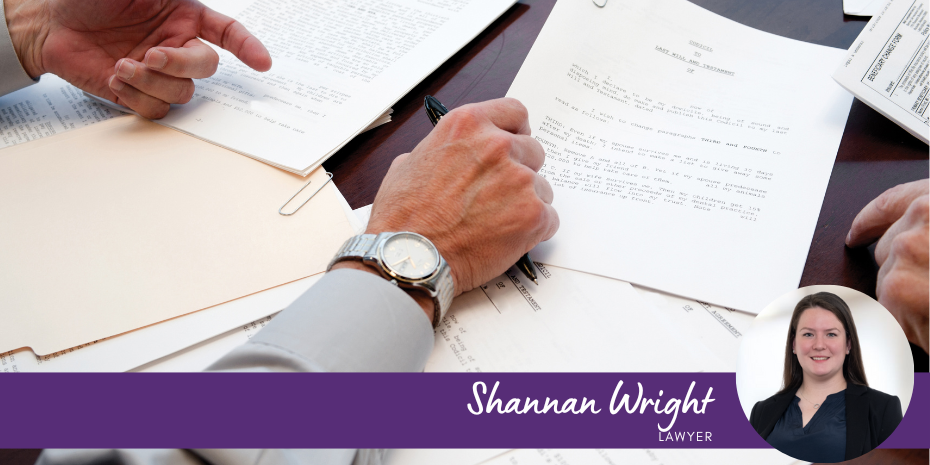WHAT HAPPENS TO YOUR SUPERANNUATION AFTER YOUR DEATH?
There is a lot of misconception about the interaction between an individual’s superannuation and their will. Clients in many cases here at Coutts will often ask us to nominate a beneficiary for their Superannuation Benefit in their will, or give directions about how a Superannuation Benefit is to be paid out upon their death. However, a Superannuation Benefit does not automatically form part of your estate when you die and therefore may not be disposed of through your will. Because of this, it is important that your particular superannuation is considered as part of your overall estate planning.
YOUR SUPERANNUATION BENEFIT
Your superannuation balance is held by the trustee of your individual superannuation fund on your behalf. Until your super is paid out, the balance is not directly held by you and because of that the balance cannot form part of your will. After your death, the trustee of your superannuation fund will have discretion in deciding who to pay the balance of your Superannuation Benefit to. In exercising this discretion, the trustee will collect information about your particular circumstances and details of all persons who are or could be considered a ‘dependent’.
Who are your Dependents?
Under superannuation law, the following persons are considered a dependent:
- 1.Your spouse, including de-facto partner, same sex partner and former spouse;
- 2.Your child, including adopted and step-children;
- 3.Anyone who was financially dependent on you; and
- 4.Anyone with whom you had an interdependency relationship (e.g. someone who had a close personal relationship with you, who lived with you and one or both of you provided the other with financial support, domestic support and personal care).
The trustee will make a decision once they have considered the circumstances of each of your dependents. This becomes problematic as the decision may not be what you would have preferred.
Death benefit nominations
You can limit the trustee’s discretion by completing a death benefit nomination. Many superannuation funds will allow you to nominate one or more of your dependents to receive your superannuation benefit after your death. Different funds may offer different types of death benefit nominations depending on the fund’s governing rules. You should enquire with your particular fund as to the options available to you.
Binding death benefit nomination
Most funds will allow you to make a binding death benefit nomination, which binds the trustee to pay your superannuation benefit to the persons you have nominated. However, the person you nominate must be a dependent. You can nominate more than one dependent and the nomination can be conditional (e.g. 100% to dependent A, but if dependent A dies before me, 50% to dependent B and 50% to dependent C).
The nomination will only bind the trustee where it complies with the following formal requirements:
- 1.It is in writing;
- 2.It states the proportion of the benefit payable to each nominated beneficiary (if more than one);
- 3.It is signed by you in the presence of two witnesses who are over the age of 18 and not nominated to receive a benefit; and
- 4.It is signed and dated by the witnesses.
In most cases, a binding death benefit nomination will lapse after three years. It is important to review your nomination on a regular basis to check if it is up to date, or to amend the persons nominated should your circumstances change.
Non-Binding death benefit nomination
A trustee is not bound to follow the direction you give regarding your preferred beneficiaries in a non-binding death benefit nomination. However, the trustee will take your preference into account in determining the best method of distributing the funds after your death. A non-binding death benefit nomination does not lapse, you should still review your nomination regularly.
What about Self-managed super funds?
If you have a self-managed super fund (SMSF), someone will need to take your place as trustee after your death. This person is usually nominated in your Trust Deed, or may even be the executor of your estate. The person who steps in as trustee will then be bound by the Trust Deed for your SMSF when determining how to distribute your superannuation benefit.
Super and wills
You can make your superannuation benefit form part of your estate to be distributed according to your Will if you complete a valid binding death benefit nomination that directs the trustee to pay your superannuation benefit to your legal personal representative, otherwise known as your executor. However, this option should be considered carefully as including your superannuation benefit as part of your estate will invariably increase the net value of your estate, which will result in increased court and legal fees for your executor. Leaving your superannuation benefit to your estate may also have significantly different tax outcomes than if it were dealt with from within the superannuation fund.
It is important to seek professional legal advice if you are planning to leave your superannuation benefit to your estate so that your plan is up-to-date, valid and your assets are distributed in the most efficient way.



